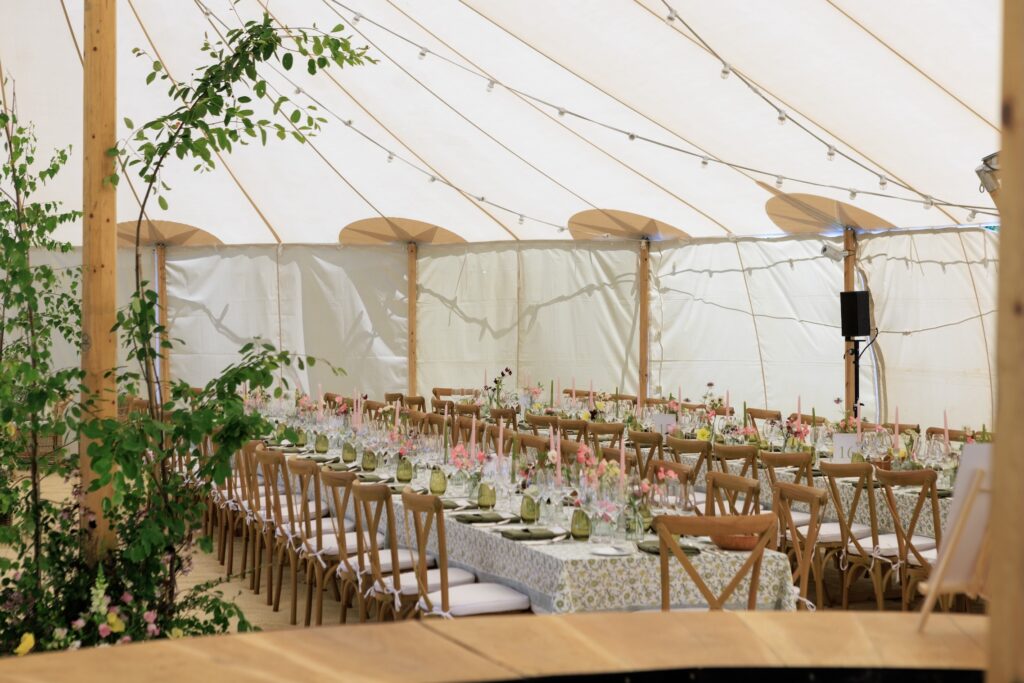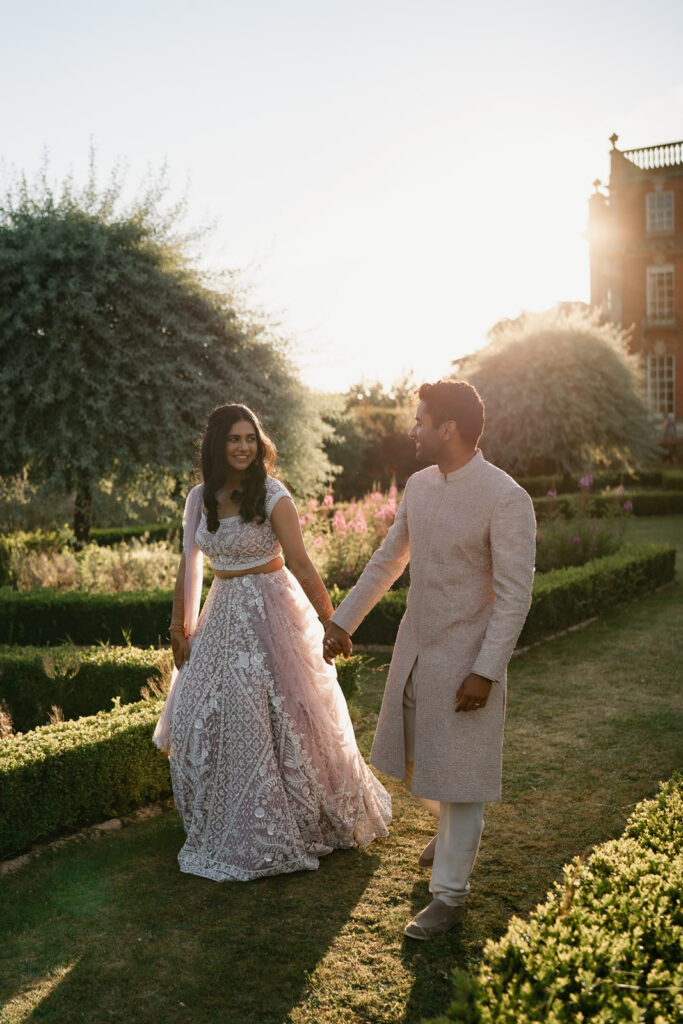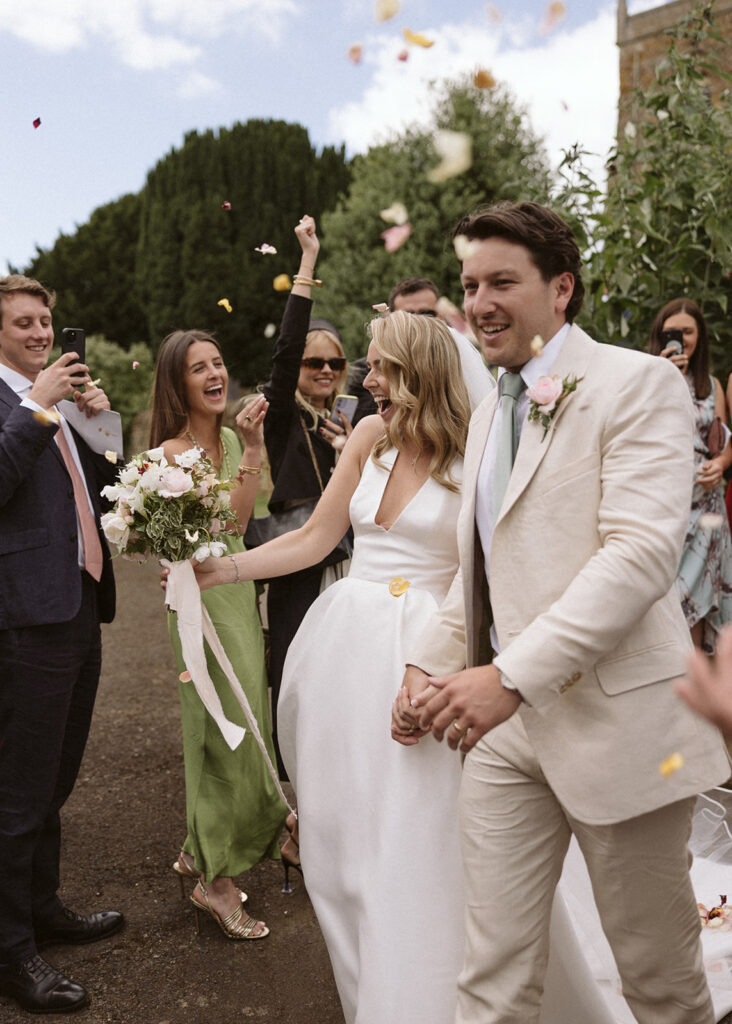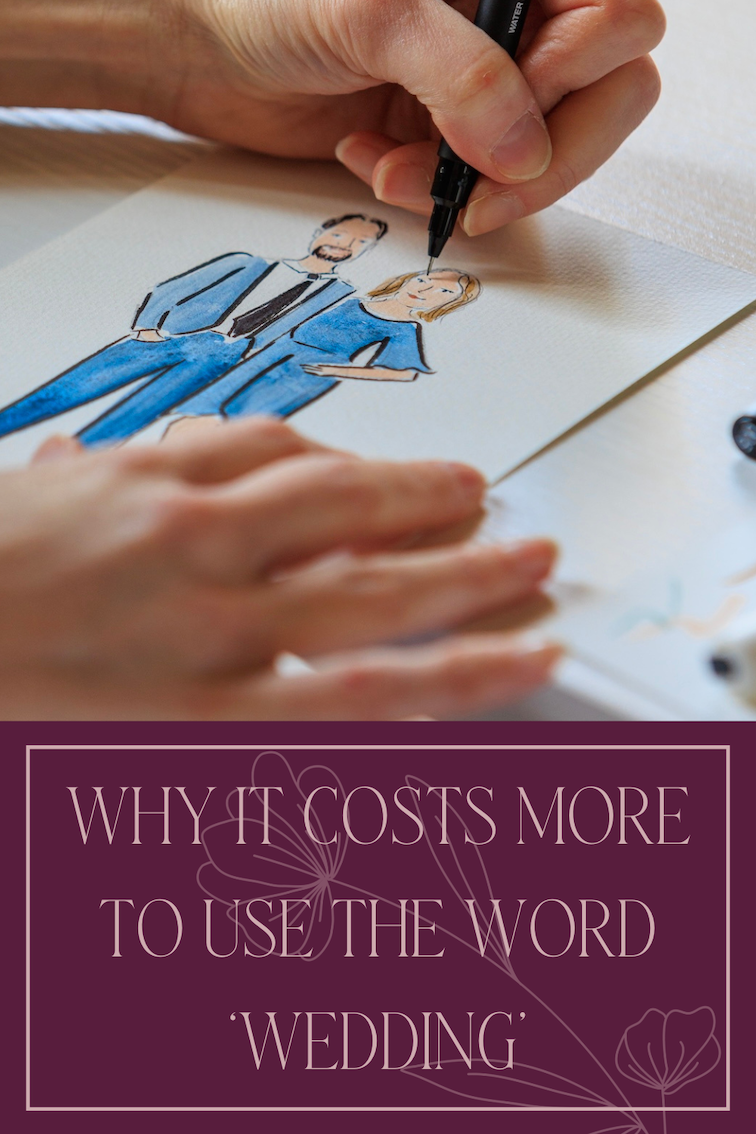It’s one of the most persistent myths in the wedding industry, and one that we are here to educate you on to say that it IS NOT TRUE – the idea that suppliers and venues costs more simply because they hear the word “wedding.” You might have heard people joke that if you call a florist and ask for 20 centrepieces for a party, the quote will be one price, but as soon as you say they’re for a wedding, the price doubles. There are various discussions across social media platforms, with couples advising other couples ‘just say it’s a party!’.
Let’s set the record straight. The reason weddings cost what they do isn’t because of an arbitrary markup, but because of the immense amount of work, skill, and expertise that goes into creating a seamless and unforgettable day. Here’s why wedding pricing is fair, and why it’s not a case of suppliers inflating prices just because they can.
Still need to sort your wedding cake? Read: Let’s Talk Wedding Cakes

The Workload and Expertise Behind Weddings
When planning a wedding, every detail is carefully curated to reflect the couple’s vision. Unlike a birthday party or a corporate event, a wedding is often a once-in-a-lifetime event with high emotional significance. That means there’s no room for error, and wedding professionals know that they are working to the highest possible standards.
From a photographer capturing every key moment to a wedding planner orchestrating every detail, the amount of planning, precision, and responsibility is enormous. Many suppliers and venues work months in advance to ensure everything is perfect. Let’s break this down with some examples:
1. Bespoke Services Require More Time
Wedding cakes, floral arrangements, and even entertainment packages are often tailored specifically to the couple’s theme, colours, and preferences. This means suppliers aren’t just pulling a pre-set package off the shelf—they are crafting something unique. Florists, for example, might need to order in specific flowers from international suppliers, store them at precise temperatures, and arrange them fresh on the morning of the wedding to ensure they look their best, whereas for a party of event, people are much more likely to be happy with whatever flowers are available and in season. So in this instance, a wedding generally costs more.
2. The Pressure is Higher
Unlike a corporate event or a birthday party, a wedding cannot be rescheduled or redone if something goes wrong. The pressure to get everything right the first time is immense. Wedding photographers, for instance, have just one shot to capture the perfect first kiss or the couple’s emotional first dance. A DJ or live band needs to set the mood perfectly and ensure seamless transitions between key moments. This level of responsibility requires experienced professionals who can handle high-pressure environments with ease.
3. Long Hours and Physical Demands
Couples planning their weddings generally also need a lot more guidance, across a longer time frame, so actually take a lot more administration time. For example, a corporate event is usually planning 2 months prior, where as a wedding is generally 12-18 months planning time, so in this instance, a wedding costs more as it takes more time.
Many wedding professionals work extremely long days, and time is money. A wedding photographer might start their day photographing bridal preparations in the morning and won’t leave until late at night after capturing the first dance and the party in full swing. Caterers and coordinators may be on their feet for 12–18 hours.
Additionally, for roles like florists, decorators, and venue stylists, there’s often a tight turnaround. A venue may only be available for setup a few hours before the event, requiring teams to work rapidly to create a dream setting. Then, they may need to return late at night or early the next morning to clear everything away. You may also only think you see someone like the florist or the cake maker for a short amount of time on the day, but their workload pre wedding day is high!

The Seasonality of the Wedding Industry
One major factor often overlooked by couples is that the wedding industry is highly seasonal. Unlike other industries that see steady work year-round, many wedding professionals make the majority of their income during the summer months, particularly on Saturdays. With this being a lot of suppliers full time jobs, working in the wedding industry costs are more, so we can get paid year round.
1. Peak Season Means Limited Availability
The majority of couples want to get married between May and September, with Saturdays being the most sought-after day. This means that venues, photographers, and planners are in high demand for only a few months of the year. If a supplier is only working at full capacity for six months of the year, their pricing has to reflect the need to sustain their business during the quieter months.
2. We Don’t Just Work On Weddings
Business owners also don’t get paid to work actually on their business, social media, emails, networking, marketing, accounts – it’s all time we have to put into the business, but not time we get paid for. Without doing these things, our businesses would fail, and most wedding suppliers are small business owners.
3. A Wedding Date is a One-Time Sale
A venue, photographer, or planner can only take on one wedding per day. Once that date is booked, they cannot take on another event, even if a higher-paying client comes along. This is different from other industries where businesses can sell multiple products or services in a day to increase revenue.
For example, a photographer shooting headshots or a florist making bouquets for a shop can take multiple orders in a day. But for weddings, each booking is exclusive, and suppliers must be compensated for turning away all other business on that date.

The Hidden Costs Behind Weddings
Many couples only see the final invoice without realising the many hidden costs and time commitments behind wedding services. Here are some examples:
1. Behind-the-Scenes Preparation
A wedding planner doesn’t just show up on the day and make everything happen magically. They spend months meeting with the couple, coordinating with suppliers, creating timelines, troubleshooting issues, and handling last-minute changes. Similarly, a DJ or band isn’t just playing music for five hours—they are spending hours preparing playlists, setting up equipment, and conducting soundchecks before the event even starts. Bands spend long hours rehearsing with their band members. Cake makers are perfecting that moist sponge.
2. Expensive Equipment and Materials
Wedding suppliers often invest in top-quality equipment to ensure a flawless experience. A wedding photographer, for example, may have £10,000+ worth of camera bodies, lenses, lighting equipment, and backup gear. Florists invest in high-quality blooms, refrigeration systems, and transport to keep arrangements fresh. A lot of wedding suppliers have costs of staff, storage units, vans, marketing…..the list is endless and these costs need to be covered in their pricing. I hear a lot of couples say how expensive the catering is, but if you actually look at the breakdown of costs, the actual food is a small percentage of the cost – it’s everything else they need for the food to make it onto the plate and in front of you.
3. Insurance, Licensing, and Staffing
Professional wedding suppliers carry business insurance, pay staff, and often need licenses to operate legally. A caterer, for example, must comply with strict food safety regulations and ensure staff are trained in proper handling techniques. These additional costs are factored into the overall price.

A Wedding is Not Just Another Event
The reality is that a wedding is not comparable to a typical party or corporate gathering. It involves an intense level of care, detail, and responsibility, as well as months of behind-the-scenes work. Pricing reflects the expertise, time, and dedication required to ensure a flawless experience, not just an arbitrary markup.
Instead of assuming vendors are inflating prices because of the word “wedding,” couples should consider the value they’re getting. Wedding professionals dedicate their lives to perfecting their craft and ensuring that your day is magical and stress-free. Their pricing isn’t a scam—it’s a reflection of their hard work, skill, and the realities of running a seasonal business.
Imagine turning up on your wedding day to your venue, and having another bride there because they had said they are just having a birthday party…..I imagine you AND the venue/suppliers wouldn’t be best pleased, and I would be shocked if they allowed them to continue with the event.

So, the next time you hear someone claim that weddings are overpriced for no reason, share this insight with them. The truth is, you’re not just paying for a service—you’re investing in an unforgettable experience created by passionate professionals who make dreams come true.

